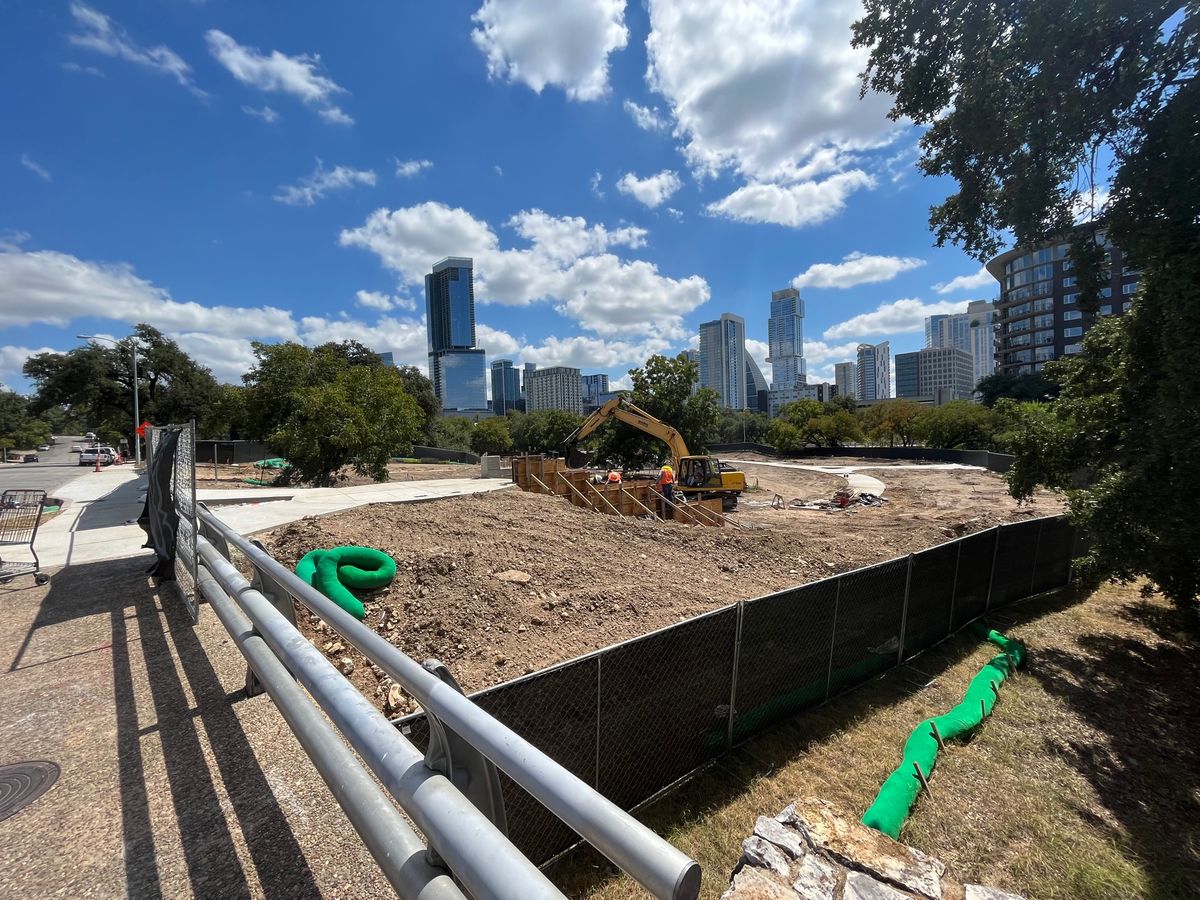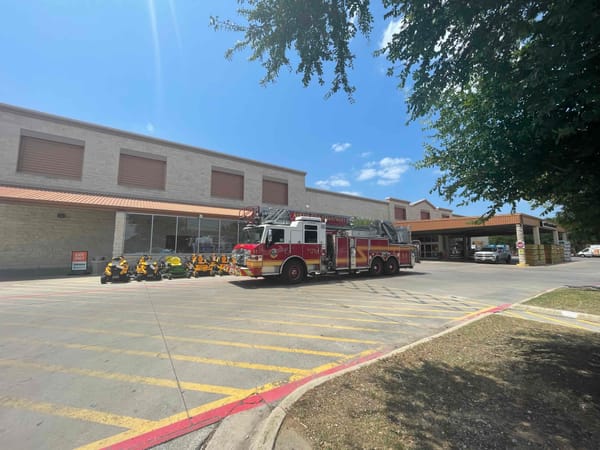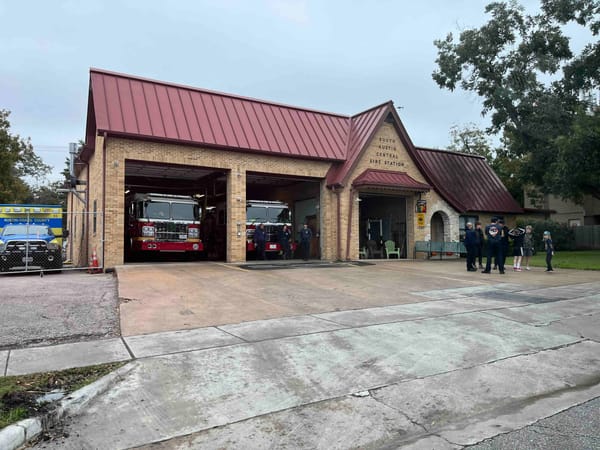Harper-Madison takes leave
The D1 rep cites mental health challenges.

Council Member Natasha Harper-Madison has announced she is taking 60 days of medical leave to address long-standing mental health issues.
"This year has been extremely challenging for me," said Harper-Madison, whose district includes much of Northeast and East Austin. "I live with depression and anxiety. Thankfully these issues can be treated with focused care."
Harper-Madison has frequently been absent from Council over the past year and when she has shown up she has not been nearly as engaged as before. Her staff, which has had an extremely high turnover throughout her tenure, has often struggled to explain her absences.
She added:
"I understand the importance of our work and the commitments we have made to our constituents, and I assure you that my decision to take this leave has not been made lightly. I have every intention of returning to my duties in good health with renewed energy and dedication to continuing to serve District 1 and the entire Austin community."
Her three aides will continue to handle constituent services and ongoing policy projects during her absence, she said.
She concluded:
"Thank you for your understanding and well-wishes during this time. Your compassion, grace, and support mean a great deal to me, and I look forward to my return to work."
"Oh, and happy early birthday Councilwoman Fuentes and Councilmember Vela. Please have an extra slice of cake for me."
Harper-Madison has not in recent months been a key player in crafting policy, and due to the increase in pro-housing members of Council, her vote is not nearly as important as it used to be. However, there could be some close votes on Council on a range of issues that her absence will affect. For instance, any rezoning that is challenged by a valid petition requires support from nine out of the 11 people on the dais. The absence of NHM, a reliable supporter of increased housing, makes that threshold harder to attain.
Well wishes poured in from colleagues:
"Natasha, I wish you all the best as you take the time needed to heal," said Leslie Pool on the message board. "Please know that my staff and I are here to support you and your team. I have seen you get through extremely challenging times in the past."
The mayor also responded: "Be well. Thanks for your service and passion. My staff and I are here for you and our shared constituents. We're lifting you up."
"It takes tremendous strength to open up about one's struggles, and your willingness to do so is both admirable and inspiring," wrote Mackenzie Kelly.
Did you notice that?
On Thursday City Council unanimously adopted an ordinance aimed at protecting several proposed zoning reforms from the same kind of litigation that brought down the Land Development Code Rewrite in 2020.
The issue is "notification" –– or "notice."
Usually this refers to a requirement in state law that every resident within a certain distance of the property get a letter in the mail informing them of a proposed zoning change and the upcoming public hearing where they can voice their opinion on it.
However, a provision of state law provides a mechanism for cities to evade that requirement.
Typically, a zoning case is first heard by a volunteer land use commission. In Austin that's either the Planning Commission or the Zoning & Platting Commission. Then, once that commission makes a recommendation on the proposed rezoning, City Council takes it up and makes a decision.
However, under this weird provision of state law, City Council, by a two-thirds vote, can decide to hear the zoning case in a joint meeting with the Planning Commission. And if they do that, it's up to them to decide what type of notice to provide –– it can fall short of what would otherwise be required. Here is the language from the statute:
(d) The governing body of a home-rule municipality may, by a two-thirds vote, prescribe the type of notice to be given of the time and place of a public hearing held jointly by the governing body and the zoning commission. If notice requirements are prescribed under this subsection, the notice requirements prescribed by Subsections (b) and (c) and by Section 211.006(a) do not apply.
I have no idea what the genesis of this provision is. I don't understand the point of a joint hearing between the Planning Commission and City Council and why that should lower the threshold for notification, but that's state law for ya.
Council is using this provision to pass several significant land use reforms, including an elimination of occupancy limits and a proposal to reduce minimum lot sizes and allow three units on single-family lots.
The ordinance that passed last week instructs the city manager to set up a joint meeting at some point in the future. It's not clear when that will occur.
Because it has the votes to do the joint meeting, Council could choose pretty much whatever kind of notice it wants. It could decide that simply publishing notice in the Austin American-Statesman is enough. However, for obvious political reasons, Council is going to mail notice to every property owner and address with an Austin Energy utility account in the city, at a cost of more than $350,000.
What's the point of doing the joint meeting if they're going to mail notice to everyone anyway? The most obvious explanation is that this provides extra protection against a legal challenge. They won't have to worry about Austin's trio of perennial plaintiffs arguing that the notice was insufficiently individualized or some other crap.
Mayor Kirk Watson, of course, as framing this as a sign of his commitment to transparency and democracy. In his most recent "Watson Wire," he contrasted the prior Council's apparent failure to "provide notice in as broad a way as possible" for CodeNEXT with his own desire for notice that is "not just the minimum that can be legally achieved, but more than the law requires."
Again, it wasn't actually the lack of notification that brought down the previous LDC revision. The issue was that, because the courts ruled that the LDC rewrite was subject to notification/protests provisions of state law, City Council members knew that it could not pass with less than nine votes. And there were not nine votes in support.
And nor was the issue of notice a significant source of opposition to the LDC revision. That was simply the technicality that the CodeNEXT opponents seized on to challenge it in court.
But it makes sense for Watson to frame the issue this way. It aligns with his brand as a housing peacemaker.





